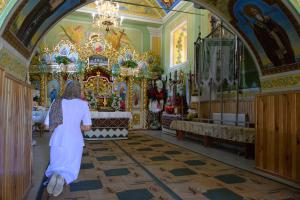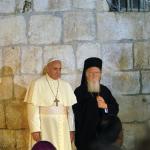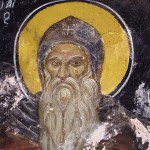 While we have become accustomed to the cross, seeing it as a representation of the Christian faith, if we stop and consider its historical implications, it is understandable why so many critics of Christianity have been confused as to why it has become so elevated in Christian thought. The cross represents a reprehensible act, crucifixion, which tortured and killed many people throughout the centuries. Not only was it a tool that many used for the sake of public executions, it was chosen in part because of the pain it inflicted upon the one awaiting death, demonstrating the malice of those who employed its use. Likewise, it was used as a visible sign of supremacy, of conquest over others, which is how and why many racists still employ it to this day. Thus, it was often used for the sake of shock and awe, indicating what was to happen to those who would revolt against the powers that be. The cross, for all so many, was and has been used as a thing of fear and dread.
While we have become accustomed to the cross, seeing it as a representation of the Christian faith, if we stop and consider its historical implications, it is understandable why so many critics of Christianity have been confused as to why it has become so elevated in Christian thought. The cross represents a reprehensible act, crucifixion, which tortured and killed many people throughout the centuries. Not only was it a tool that many used for the sake of public executions, it was chosen in part because of the pain it inflicted upon the one awaiting death, demonstrating the malice of those who employed its use. Likewise, it was used as a visible sign of supremacy, of conquest over others, which is how and why many racists still employ it to this day. Thus, it was often used for the sake of shock and awe, indicating what was to happen to those who would revolt against the powers that be. The cross, for all so many, was and has been used as a thing of fear and dread.
Why, then, did Christians pick it up and use it as their symbol? How could such a cruel thing be seen as indicating great love and mercy? From the foundation of the Christian faith it has been embraced by Christians and that embrace has been questioned by their critics who thought it was rather foolish for Christians to lift it up as a sign of love. Paul, nonetheless, said that if Christians seemed foolish to the wise men of his age, the wisdom of God which transcended human wisdom and understanding lifts up the cross as a sign of victory. We can and should take what was once used for evil and turn it around into a symbol of God’s victory over evil itself:
For the word of the cross is folly to those who are perishing, but to us who are being saved it is the power of God. For it is written, “I will destroy the wisdom of the wise, and the cleverness of the clever I will thwart.” Where is the wise man? Where is the scribe? Where is the debater of this age? Has not God made foolish the wisdom of the world? For since, in the wisdom of God, the world did not know God through wisdom, it pleased God through the folly of what we preach to save those who believe. For Jews demand signs and Greeks seek wisdom, but we preach Christ crucified, a stumbling block to Jews and folly to Gentiles, but to those who are called, both Jews and Greeks, Christ the power of God and the wisdom of God (1 Cor. 1:18-24 RSV).
The pomp and glory of Rome was shown by its power, the power it had of the life and death of the people it had conquered and subdued. Jesus died on the cross, humble and powerless, and yet in his powerlessness, the cross, the sign of Rome’s victory over all opposition became the sign of God’s victory over the systematic evil and cruelty which Rome embraced in its pursuit of power.[1] Just as with all other evil, God was able to take the evil of the cross and transform it into a power of good. Jesus reconfigured the world with the cross as the tool which he used for that reconfiguration, so that it no longer had to be associated as a sign of brutality. What was a sign of defeat, a sign of evil, was taken over and transformed into a sign of victory and the goodness of God. The cross therefore became the sign of the powerlessness of power to sustain itself, showing that such power with its brutality towards others will come to an end. But first, Jesus had to ascend the cross and take on that cruelty upon himself:
So they took Jesus, and he went out, bearing his own cross, to the place called the place of a skull, which is called in Hebrew Golgotha. There they crucified him, and with him two others, one on either side, and Jesus between them. Pilate also wrote a title and put it on the cross; it read, “Jesus of Nazareth, the King of the Jews.” Many of the Jews read this title, for the place where Jesus was crucified was near the city; and it was written in Hebrew, in Latin, and in Greek (Jn. 19:17-20 RSV).
Jesus, the God-man, emptied himself before all in his love for all; he gave himself over to the authorities whose power symbolized and represented evil of the world. He gave them the power to do as they will to him. Though he died through an inglorious execution, he was not broken. Instead, the power of death was itself broken and so the cross has become the trophy of Christ and his victory in his spiritual war against the powers that be. Thus, we now seek through it victory over our true enemies, the powers which try to create and recreate the structure of sin in the world. The cross has now become a “weapon for peace,” for through it, the power of violence and death has been overcome:
O Christ our God, Who wast voluntarily lifted up on the Cross, grant Thy mercies to Thy new people named after Thee. Gladden with Thy power Orthodox Christians and give them victory over their enemies. May they have as ally that invincible trophy, Thy weapon of peace (Kontakion of the Elevation of the Cross).
The cross is now raised up. Christians now look at it and venerate it because of the holiness Jesus has imbued to it thanks to its place in salvation history. Christians look at it under the mantle of the resurrection. They see it was the tool which the God-man used for his conflict with the powers that would direct the world through evil; on it he emptied himself, the perfect man, humble and unmoving as he encountered the force of sin which sought to destroy him and all of creation. Christians elevate it and see it as the sign that true power and grace cannot be annihilated by evil. It has become transformed and made holy, and now it can be embraced by those who follow Jesus and fight against the sin and structures of sin in the world. They now lift it up like Moses did the serpent-staff. Where they lift it up, they see it now has the ability to help them conquer the powers of evil. They lift it up, but they must do more than that; they must also let it teach them about the path to true holiness. Through it, they find the true good is found in humble love. If they want the fullness of its power to help them in their fight against sin, their true enemy, they must pick up the cross and follow after Jesus and embrace his path of humble love for themselves.
O Lord, save Thy people and bless Thine inheritance. Grant victory over their enemies to Orthodox Christians, and protect Thy people with Thy Cross (Troparion of the Elevation of the Cross)
We lift up the cross and venerate it; but it is worthless for us to do so if in our heart we follow after the way of death, the way of power and conquest over others, as the cross used to represent. We risk finding ourselves as not being like St. Dismas, the good thief, but like his fellow thief, Gesmas, mocking Jesus, pretending to be interested in him and his ways while wanting him to do our bidding instead of his own. How can we expect Jesus to reveal to us paradise if we hold on so strongly to the powers that be and the evil which they constitute in society? No, we need victory over them. The cross can be our protection, but only if we let it remind us that the true way of greatness is taking up our cross and following Jesus all the way in humility and love and not by taking up the cross so that we can use it as a weapon to bludgeon others for our own pomp and glory. Only then can we have it as our weapon of peace, the means of victory against our true enemies, sin and death.
[IMG=Exaltation of the Holy Cross Church Monastyrok by Mykola Swarnyk (Own work) [CC BY-SA 4.0 (http://creativecommons.org/licenses/by-sa/4.0)], via Wikimedia Commons]
[1] This is not to say that Rome was all evil; there was also great good found in Rome as well; but in its brutality and force, the evil side of Rome represented the demonic powers of the world, ‘Babylon the Great.”
Stay in touch! Like A Little Bit of Nothing on Facebook













